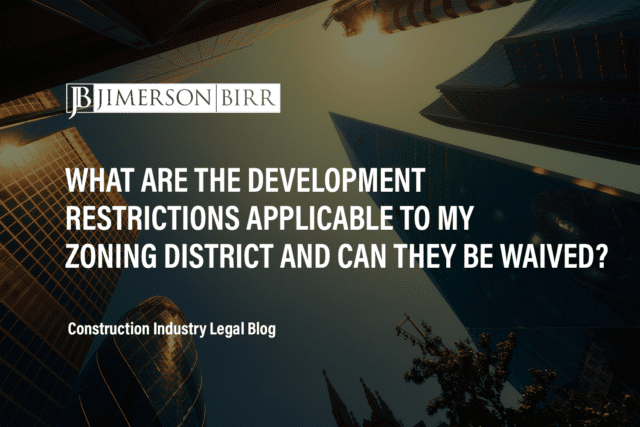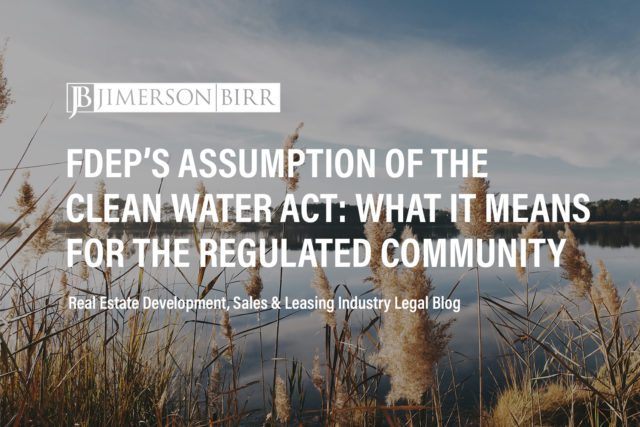What do soil, surface water, and groundwater assessment and remediation entail?
Soil, surface water, and groundwater assessment and remediation compliance refer to the processes by which responsible parties identify, evaluate, and address contamination in these environmental components. These processes, aimed at protecting human health and preserving environmental quality, involve identifying contaminants, quantifying their concentration, and implementing appropriate remediation measures.
One example of assessment and remediation compliance in Florida is the Florida Department of Environmental Protection’s (FDEP) Petroleum Restoration Program. The program focuses on addressing petroleum contamination resulting from storage tank systems. Under this program, responsible parties or their agents must conduct site assessments and remediation activities, following FDEP guidelines and procedures.
Need help regarding environmental due diligence, permitting, mitigation, or compliance? Schedule your consultation today with a top environmental law attorney.
Which laws and regulations apply to soil, surface water, and groundwater assessment and remediation in Florida?
Several Florida and federal laws and regulations govern soil, surface water, and groundwater assessment and remediation compliance. At the state level, the FDEP’s Division of Waste Management oversees assessment and remediation efforts under Chapters 62-520, 62-524, 62-550, 62-701, 62-710, and 62-780 of the Florida Administrative Code. These regulations encompass various aspects of environmental management, including water quality standards, waste disposal, and contaminated site cleanup.
On the federal level, essential laws and regulations include the Resource Conservation and Recovery Act (RCRA), the Clean Water Act (CWA), and CERCLA. RCRA, enforced by the EPA, regulates the management of hazardous and non-hazardous solid waste. The CWA establishes water quality standards and regulates the discharge of pollutants into surface waters. Finally, CERCLA addresses the cleanup of contaminated sites.
What are common issues regarding soil, surface water, and groundwater assessment and remediation that lead to litigation?
The following issues are among the most common in actions regarding soil, surface water, and groundwater assessment and remediation in environmental law matters:
- Insufficient site assessments: Inadequate or incomplete evaluations of contamination levels, leading to disputes over the extent of contamination and necessary remediation measures.
- Disagreements on remediation methods: Conflicts between parties regarding the most effective and appropriate cleanup techniques, often involving cost considerations and potential impacts on property values.
- Cost recovery disputes: Legal battles over which parties are responsible for bearing the costs of assessment and remediation, mainly due to the involvement of multiple parties or disagreements over liability.
- Regulatory noncompliance: Allegations of failure to adhere to federal and state regulatory requirements, potentially resulting in fines, penalties, or enforcement actions.
- Natural resource damages: Claims for compensation from responsible parties for harm to natural resources, such as wetlands or endangered species, due to contamination.
When a set of facts is appropriate for legal intervention, there are many paths a claimant may take. We are value-based attorneys at Jimerson Birr, which means we look at each action with our clients from the point of view of costs and benefits while reducing liability. Then, based on our client’s objectives, we chart a path to seek appropriate remedies.
To determine whether your unique situation may necessitate litigation, please contact our office to set up your initial consultation.
What claims about soil, surface water, and groundwater assessment and remediation do plaintiffs generally bring to court, and what are common legal defenses to those claims?
Common claims that real estate developers and businesses face related to soil, surface water, and groundwater assessment and remediation compliance include:
- Negligence
- Strict liability
- Trespass
- Nuisance
- Breach of contract
Common legal defenses raised against these claims include:
- Statute of limitations: Asserting that the claim is time-barred because it was not brought within the legally prescribed time.
- Contributory negligence or comparative fault: Arguing that the plaintiff contributed to the contamination or worsening of the problem, reducing the defendant’s liability.
- Compliance with regulatory standards: Demonstrating that the defendant adhered to all relevant federal and state regulations, potentially negating or minimizing liability.
- Act of God or third-party liability: Contending that the contamination resulted from natural events or actions of unrelated third parties, absolving the defendant of responsibility.
- Lack of causation or damages: Challenging the plaintiff’s ability to prove the defendant’s actions directly caused the alleged harm or that the plaintiff suffered actual damages.
Please contact our office to set up your initial consultation to see what actions or defenses may be available for your unique situation.
What are effective measures to minimize the risk of litigation over soil, surface water, and groundwater assessment and remediation?
The following measures may be impactful:
- Performing comprehensive site assessments: Conduct thorough evaluations of potential contamination to identify and address issues early on, reducing the likelihood of disputes.
- Consulting with experts: Engage environmental consultants and legal advisors to ensure all regulatory requirements are understood and met, minimizing the risk of noncompliance.
- Establishing clear communication: Open and transparent communication between stakeholders, regulatory agencies, and local communities can help to address concerns and manage expectations.
- Implementing best management practices: Adhere to industry best practices for assessment, remediation, and monitoring to demonstrate commitment to environmental stewardship and minimize potential liability.
- Maintaining thorough documentation: Proper record-keeping of assessment, remediation, and regulatory compliance efforts can serve as evidence in case of disputes or legal action.
Frequently Asked Questions
- What is the role of the FDEP in soil, surface water, and groundwater assessment and remediation compliance?
The Florida DEP is responsible for enforcing state and federal environmental regulations, issuing permits, and overseeing the assessment and remediation of contaminated sites. In addition, they provide guidance and technical assistance to help businesses and property owners comply with environmental laws and protect natural resources.
- How does the Comprehensive Environmental Response, Compensation, and Liability Act (CERCLA) apply to Florida soil, surface water, and groundwater contamination?
CERCLA, also known as the Superfund, is a federal law establishing a framework for cleaning up hazardous waste sites and holding responsible parties accountable for remediation costs. In Florida, CERCLA applies to contaminated sites that pose a significant risk to public health and the environment, and it works in conjunction with state laws to ensure effective remediation.
- How can businesses proactively address potential soil, surface water, and groundwater contamination issues on their properties?
Businesses should proactively monitor and test soil, surface water, and groundwater for contamination, adopt pollution prevention measures, and promptly address any identified issues. Additionally, businesses should consult with environmental experts and legal counsel to stay informed about current regulations and best practices to ensure ongoing compliance.
Have more questions about an environmental law-related situation?
Crucially, this overview of soil, surface water, and groundwater assessment and remediation does not begin to cover all the laws implicated by this issue or the factors that may compel the application of such laws. Every case is unique, and the laws can produce different outcomes depending on the individual circumstances.
Jimerson Birr attorneys guide our clients to help make informed decisions while ensuring their rights are respected and protected. Our lawyers are highly trained and experienced in the nuances of the law, so they can accurately interpret statutes and case law and holistically prepare individuals or companies for their legal endeavors. Through this intense personal investment and advocacy, our lawyers will help resolve the issue’s complicated legal problems efficiently and effectively.
Having a Jimerson Birr attorney on your side means securing a team of seasoned, multi-dimensional, cross-functional legal professionals. Whether it is a transaction, an operational issue, a regulatory challenge, or a contested legal predicament that may require court intervention, we remain tireless advocates at every step. Being a value-added law firm means putting the client at the forefront of everything we do. We use our experience to help our clients navigate even the most complex problems and come out the other side triumphant.
If you want to understand your case, the merits of your claim or defense, potential monetary awards, or the amount of exposure you face, you should speak with a qualified Jimerson Birr lawyer. Our experienced team of attorneys is here to help. Call Jimerson Birr at (904) 389-0050 or use the contact form to schedule a consultation

We live by our 7 Superior Service Commitments
- Conferring Client-Defined Value
- Efficient and Cost-Effective
- Accessibility
- Delivering an Experience While Delivering Results
- Meaningful and Enduring Partnership
- Exceptional Communication Based Upon Listening
- Accountability to Goals











